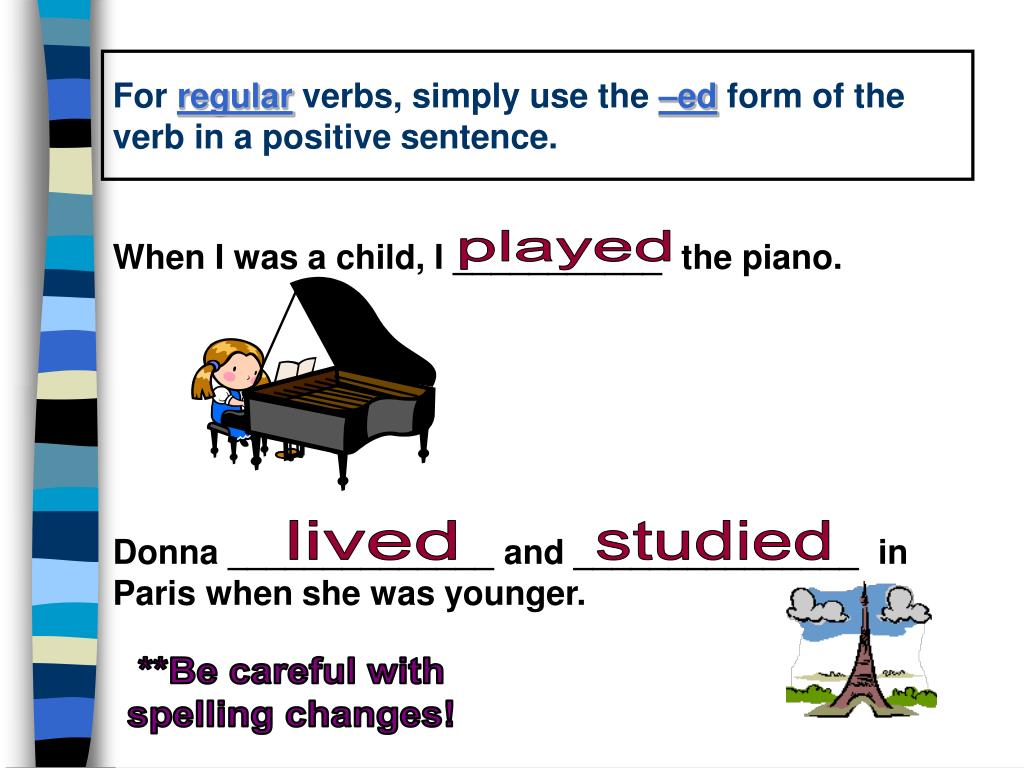

Its past form can still be hieb (although haute is more common).īut when used with slang expressions like Ich haue dir eins auf die Fresse In the 3rd-person singular, both bäckt and backt are possible. The third person past of backen ("to bake") was once buk or bük, but few Germans know that anymore,Įven though the past participle of backen remains strong: gebacken. Which then goes to the end of the clause: Wir kauften immer montags ein.Īs a result, ordinary speakers have forgotten the preterite form of some strong verbs that are traditionally used informally. One was called Snow White, and the other Rose Red.Īs in the present tense, the finite verb might have a She had two children who were like the two rose-trees, and Of which one bore white and the other red roses. There was once a poor widow who lived alone in a cottage. This is particularly true when it serves to cut down on complexity.Įven in ordinary speech it is more usual to say "ich musste einen Arzt rufen lassen" than "ich habe einen Arzt rufen lassen müssen." Or "sie konnte ihn sehen", rather than "sie hat ihn sehen können."

It is quite common to say: "ich war da", instead of "ich bin da gewesen" "wir hatten eine Katze", instead of "wir haben eine Katze gehabt" There are however, a few exceptions, primarily the verbs "sein," "haben," In ordinary conversation, then, the simple past is unusual. The simple past is reserved for more formal narratives novels are one example. Indeed, many dialects do not have a simple past. Of the most common strong verbs, arranged in those groups.Įrich Romann lived here until 1935, when, under pressure from the Nazi regime, he took his own lifeįurther distinctions between the simple past and the present perfect: in spoken German, the simple past is perceived as formal.Ĭolloquial narratives often use the present perfect tense: "Ich bin nach Hause gegangen und habe meinem Mann gesagt." These irregular forms fall into distinct categories. (usually) change the stem and add either no ending or -st, -en, or -t: Ich ging nach Hause. Independent writers, publicists, philosophers, and academicians In the middle of this square on May 10, 1933, National-Socialist students burned the works of hundreds of Weak verbs form the simple past by adding -(e)te, -(e)test, -(e)ten, or -(e)tet to the stem: Ich sagte das.Īdd these same endings to a (usually) changed stem: Ich wollte das hören. Indeed, they sometimes even mix the two tenses indiscriminately. German speakers are not always careful in making this distinction.


Hence it is typically used in narratives. In German, as in English, the simple past differs from the present perfect, in that it describes past events that are interrelated within a time frame that is separate from the present. The Simple Past Tense (das Präteritum, das Imperfekt) in German: Strong, or irregular, verbs generally change the vowel in the stressed syllable.Ī variety of other changes are possible, as well: "ate," "sang," "held," "went," "thought," etc.Īlbert Einstein was active here from 1914 to 1932 While the latter leaves open the possibility that I might cook more).Įnglish forms this tense in several ways: Weak verbs add -ed: "looked," "wanted," "worked," etc. (compare the simple past "I cooked twice this week" with the present perfect, "I have cooked twice this week" - the former implies that that's all the cooking I'm going to do, The simple past describes an event within a time frame that is completed The Simple Past Tense (also called the Imperfect or Preterite) in English: Writer, critic of his times, opponent of nationalism and militarism. Kurt Tucholsky lived here from 1920 to 1924.


 0 kommentar(er)
0 kommentar(er)
